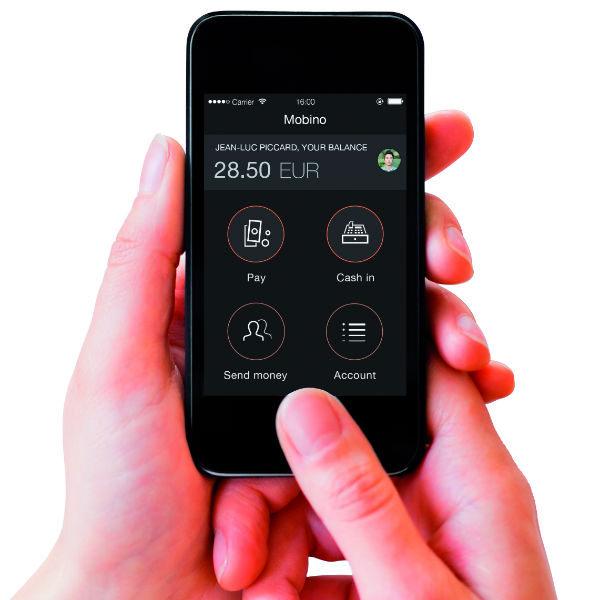Mobino: transforming transactions - Jean-François Groff
Mobino is a Geneva-headquartered mobile payments company. CEO Jean-François Groff, one of the web's early pioneers, talks to Future Banking about the need for banks to capitalise on new mobile technologies and move to real-time authorisation of transactions in an open network.
What was it that led you to establish Mobino?
Jean-François Groff: I founded the company two years ago out of my frustration that it was still very difficult to transfer money electronically, despite the internet having gone mainstream over the last 20 years. The digitalisation of the economy had touched almost all sectors except finance, which was really strange to me. I was expecting money transfer to become a core function of the internet, especially the mobile internet. But that didn't happen. So I had the idea to make it happen and embarked on this adventure of creating a company to push forward those ideas and accomplish this goal.
The vision is that anybody should be able to exchange money freely from their phone, irrespective of if they are in a rich or poor country, have a smartphone or a traditional phone, and a bank account or not. It should also be independent from the existing credit card infrastructure.
Why not embrace existing credit card networks?
I often get asked that question. And I say, yes, credit card networks are expanding, but not fast enough. There are structural reasons why they cannot expand as fast as mobile phones. Access to banking services will keep growing, but it's been overtaken by the growth of the mobile internet and universal data access. What is money, in the end? It's only data. It's very small pieces of data, and you should be able to exchange them freely.
At Mobino, we created a product that leveraged the existing infrastructure of the internet to transfer money. The front end is done on the mobile internet, of course, while the back end, where money is transferred between banks, is connected with the banking system and infrastructure in several countries.
What markets do you predominantly serve?
Headquartered in Switzerland, Mobino is operational in Europe and connected to the SEPA settlement system. At the moment, we are also exploring the connection to the banking systems of various countries in Africa and Asia.
In fact, we are lobbying for initiatives in developing countries, particularly for the unbanked population. In an ideal world, we would like to see mobile payment foundations and initiatives that would be nationwide. The central bank of a country could introduce its own digital currency based on Mobino or similar technology, with the idea that you replace a part of your cash and bank notes with the equivalent 'digital legal tender'.
You say the system was born out of a sense of frustration that the potential of the internet was not being harnessed in the right way - do you still feel banks need to do more to leverage mobile and contactless technologies?
I certainly feel that they should embrace an open infrastructure. Historically, banks have actually been at the forefront of the information technologies. Who were IBM's biggest customers in the '60s and '70s? They were banks, and then came the large industries. They have built, over decades, very sophisticated, proprietary infrastructures for their own purposes - the SWIFT network is a prime example.
And now, the IT revolution exists in a more advanced state, outside the banks, and I think they are experiencing difficulties in reconciling these two networks. There's a concern over privacy and secrecy, and proprietary networks within the banks, not to mention relationships between them and the regulators.
Most of the banks I talk to tell me, look, we have our own infrastructure, which works well - why should we invest in another, public infrastructure that is going to undermine our own networks? If everybody can suddenly transfer funds electronically and instantly, then what is the purpose of SWIFT? If everybody can receive money on their mobile phone, then what is the purpose of the credit card? Why should we restrict the credit card to merchants, which are vetted and risk-assessed all the time, if suddenly you give that capability to the general public?
So they'd rather stay on their existing networks. That's the sense I have of it. But you do get some banks that invest in enhanced capabilities and the simplification of the relationship with the general public. For example, some banks are deploying simplified peer-to-peer payment capabilities and their customers are delighted.
What, in your opinion, are the largest avoidable costs associated with a payments processing infrastructure?
Today, most electronic retail payments go through card networks and associations, such as Visa and MasterCard, or some national schemes. These card networks were designed in an age when the trust had to be conveyed through tangible means - namely, the card itself, the magnetic stripe on it and the devices at point of sale. This was all very expensive and costly, but it was worth it because it was a way to convey trust between people.
Today, we have the same need for trust, but the means of delivering of it can be made faster, cheaper and more convenient while remaining secure, thanks to ubiquitous online technology.
For instance, if we move to real-time authorisation of all transactions in an open network, then we considerably reduce the risk. And if we reduce risk upfront, then we can reduce the fees associated with that, and also the number of intermediaries between the payer and the payee.
In the time that has elapsed since you set up Mobino, the mobile payments industry has continued to transform. Are there any prevailing trends that you see shaping the sector in the coming years?
I think we are only at the beginning of a massive shift towards electronic transactions that are settled in real time. That will play out over the next ten or 15 years, at least - it takes a generation to change habits. There are many initiatives, as large and small players are moving into this area, but the landscape is undergoing a monumental shift which makes it hard to predict the winners.
It reminds me of what happened in the telecoms industry in 1980s. At that time, it was vertically integrated and you had suppliers that had a monopoly on everything from the physical phones to the billing schemes.
Banks and payment networks find themselves in a similar situation today. But, over the last 20 years, we've seen the world of telecoms totally rearranged, with new players gaining access to the network, and new payment models. Now, it's comprised instead of a galaxy of suppliers, who are specialised at one layer or another. It's been totally transformed.
The finance industry is still in the very early stages of this, but I think it is going to follow suit. We are at the stage where the big monopolies are being fragmented and decentralised, and new entrants have the chance to compete. I'm very interested in the legal development in Europe, where, with the Payment Services Directive and the e-money regulation, the regulators are trying to provide a level playing field so that new entrants can compete with the incumbents.



